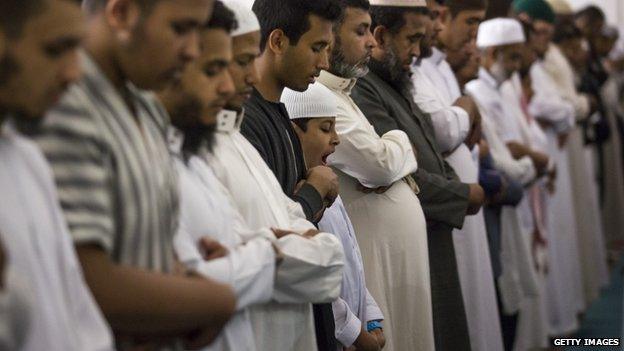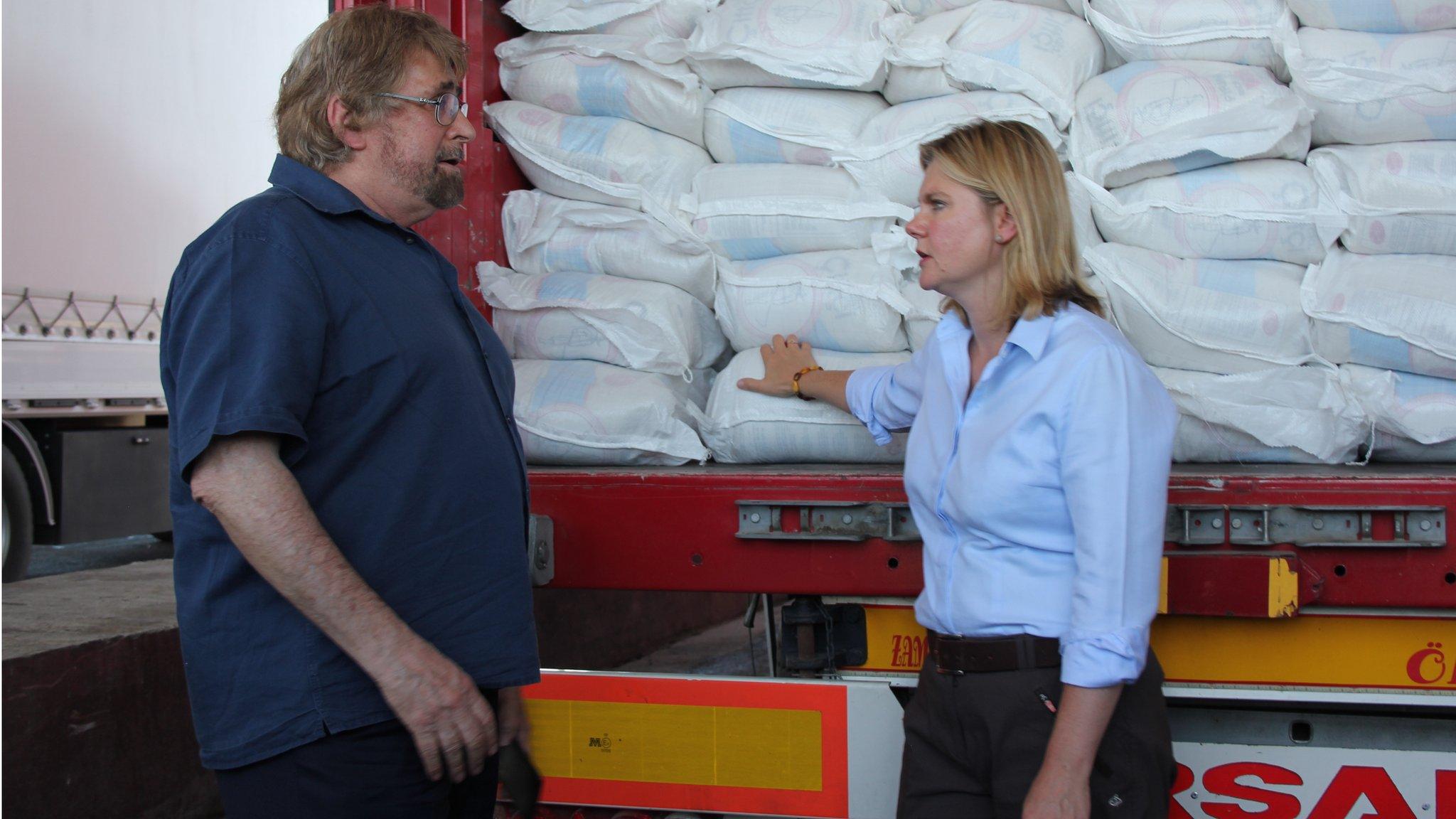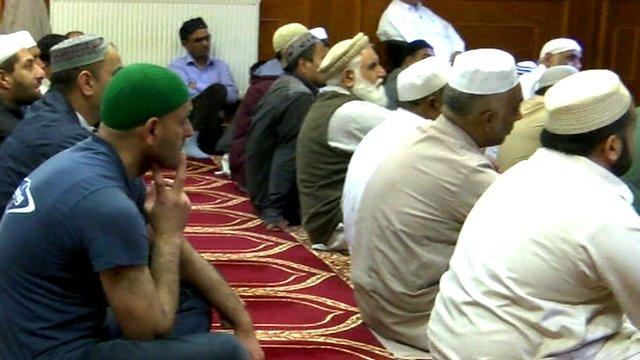Syria and Iraq: Ramadan plea to British Muslims
- Published

Muslims across Britain are observing the holy month of Ramadan
British Muslims have been urged to make aid donations during Ramadan to help people in Iraq and Syria, but warned about going there themselves.
Imam Shahid Raza, from Leicester Central Mosque, said people should make donations from the UK.
More than 140 imams have signed an open letter , externalasking British Muslims not to go to Syria and Iraq.
One Muslim relief worker said Muslims should only go as part of a "structured organisation".
Some 6.5 million people have been displaced in Syria since an uprising against President Bashar al-Assad began in March 2011. Some 500 UK Muslims are thought to have gone to fight in Syria.
And Islamist militant group Isis has seized large swathes of Iraq and Syria.
Imam Raza told Radio 4's Sunday programme that Muslims around the world would be giving to good causes during the current holy month of Ramadan.
"The situation in Syria and Iraq is very grave and we are all concerned about it," he said.
"The imams of the British mosques are appealing to their audiences that Muslims should be more generous towards donating financially, helping and assisting the refugees and those who are suffering.
"At the same time, British imams are appealing to Muslim community not to travel to Iraq and Syria at all."
'Structured organisation'
Imam Raza said the situation in those countries was "unsafe and risky" and the Qur'an warned people against putting themselves in danger.
Atiqur Rahman, who travelled to Syria from the UK earlier this year with a humanitarian aid convoy, said people should offer assistance so long as they were joining a structured organisation and not merely travelling by themselves.
"If we don't go, then who are you expecting to go there and help those people?
"People aren't just going there on their own and giving aid out. We're all going there under some sort of structured organisation."
Mr Rahman urged people not to travel overseas to become involved in fighting, but said aid volunteers should travel with credible organisations.
"If there are individuals who want to go down on their own with their friends, this is where it gets risky and this is what we need to stop.
"The fact is we can't stop people from going there and providing aid. What we should be doing is giving them support because what they're doing is courageous and positive stuff, give them a list of organisations who are already there."
- Published5 July 2014

- Published4 July 2014
